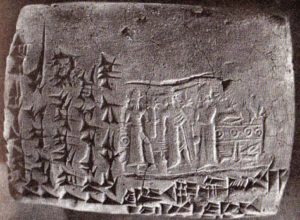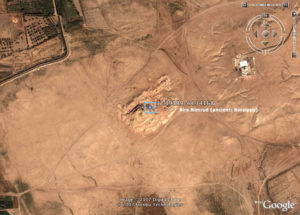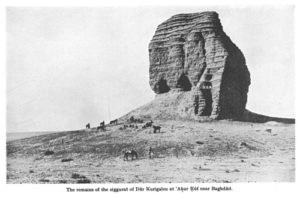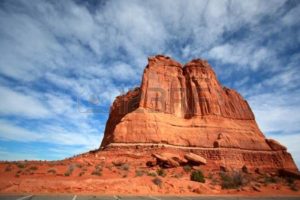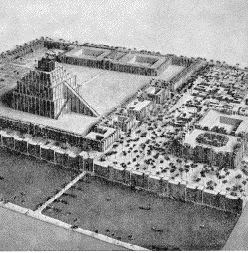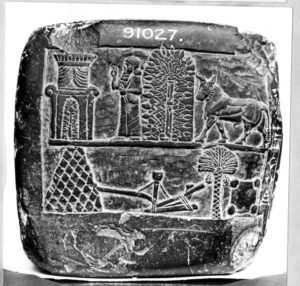(Texts: All Artifacts, Color Coding, & Writings in Bold Type With Italics Inside Parenthesis, are Added by Editor R. Brown, not the Authors, Translators, or Publishers!)
(gods in blue … mixed-breed demigods in teal)
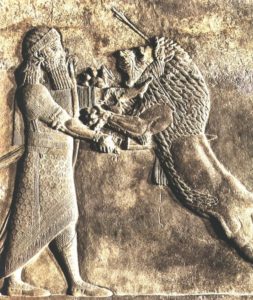 (larger mixed-breed King Ashurbanipal wrestles lion)
(larger mixed-breed King Ashurbanipal wrestles lion)
I, Ashurbanipal, great king, mighty king, king of the world, king of Assyria,
king of the four quarters (of the world), king of kings, prince who has no rival,
who by the command of the gods Aššur (Ashur), Šamaš (Utu), and Marduk
rules from the Upper Sea (10) to the Lower Sea and has subjugated all rulers,
who provides (butler to the gods) for Esagil, the palace of (Marduk & spouse) the gods —
whose doorbolt I made glisten like the stars (lit. “writing”) of the firmament —,
who repaired the damaged parts of all their sanctuaries,
(who) established (my) protection over all cult centers, whose deeds are pleasing to all the gods
(and) whose shepherdship is sweet to the black-headed (non-mixed earthlings) people;
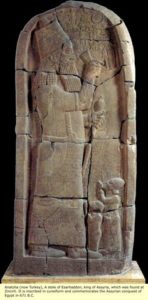 (giant god Ashur & King Esarhaddon; Esarhaddon)
(giant god Ashur & King Esarhaddon; Esarhaddon) 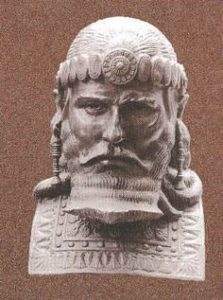
son of Esarhaddon, great king, mighty king, king of the world, king of Assyria,
viceroy of Babylon, king of the land of Sumer and Akkad,
who (re)settled Babylon, (re)built Esagil, renovated the sanctuaries of all the cult centers,
constantly established appropriate procedures in them, and (re)confirmed their interrupted offerings,
(who) restored the rites and rituals according (30) to the old pattern;
grandson of Senna[cherib], great king, mighty king, king of the world, king of Ass[yria], I —
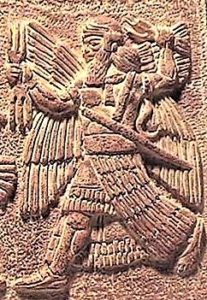 (Marduk, patron god of Babylon)
(Marduk, patron god of Babylon)
During my reign, the [great] lord, the god Marduk,
who during the reign of a previous king had resided in Baltil (Aššur) (Ashur’s patron city-state)
in the presence of the father who created [him], entered Babylon amidst rejoicing.
I (re)confirmed the regular offerings for Esagil and the gods of Babylon.
I (re–)established the privileged status of Babylon (and) in order that the strong might not harm the weak,
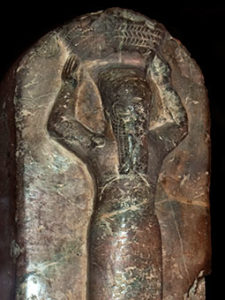 (Samas-suma-ukin, King of Babylon under Marduk, carrying grain, mud bricks, etc.)
(Samas-suma-ukin, King of Babylon under Marduk, carrying grain, mud bricks, etc.)
I appointed Šamaš-šuma-ukīn, my favorite brother, to the kingship of Babylon.
I completed the work on Esagil which my father had not finished.
I roofed it with immense beams of cedar and cypress, the produce of Mount Amanus and Mount Lebanon.
I had doors made of boxwood, musukkannu-wood, juniper, and cedar and I hung (them) [in] its gates.
I had vessels made of gold, silver, bronze, iron, wood, and (precious) stones and I placed (them) inside it.
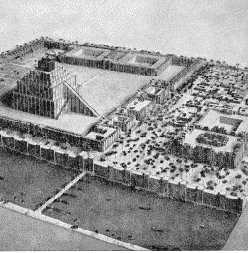 (Esagil, Marduk’s residence with separate private hotels for the others)
(Esagil, Marduk’s residence with separate private hotels for the others)
At that [time], I had Ekarzagina, the shrine (private hotel) of the god E[a] (Enki) which is inside Esagil, (re)built anew.
May the god Ea, king of the Watery Abyss (apsû), look upon this work with [pleasure]
and may a good word for me — [Ashurba]nipal, king of Ass[yria, prince] who reveres him — be set upon his lips!
May he determine as my fate a long life, fullness of ol[d a]ge, good health, and happiness!
May he [make] the foundation of my [royal th]ro[ne as secure] as a mountain!
May he make my reign as firm as heaven and netherworld!
Moreover, with regard to Šamaš-šuma-[uk]īn, king of Babylon, my favorite brother,
may his days be long and may he be fully satisfied with (his) good fortune!
If at any time in the future, [during the days] of the reign of some future prince,
this work falls into disrepair, [may (that prince) re]pair its dilapidated state!
May he look at my royal statue, [an]oint (it) [with oil], offer a sacrifice, (and) place (my statue) with his (own) statue!
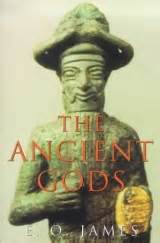
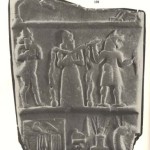 (Enki / Ea, wisest of the gods, 1st to arrive on Earth with crew of 50)
(Enki / Ea, wisest of the gods, 1st to arrive on Earth with crew of 50)
The god Ea will (then) listen to his prayers.
(But) as for the one who e[ras]es my inscribed name, (or) [destroys] my royal statue,
or [ch]an[ges] its position [and] does not pla[ce] (it) with [his] (own) sta[tue],
may the god Ea, august lord, glare at him angrily, overthrow his royal rule, and take away his sovereignty.
May he (Ea) (Enki) make his name (and) his descendant(s) disappear from the lands and have no pity on him!
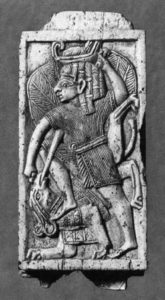
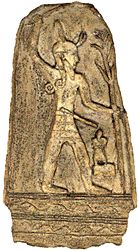
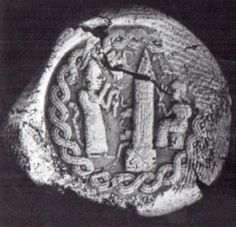
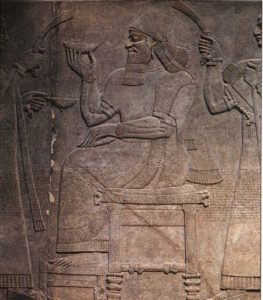
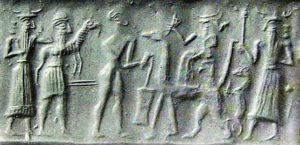
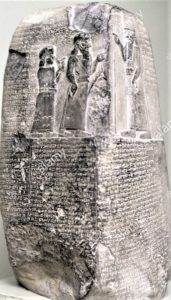
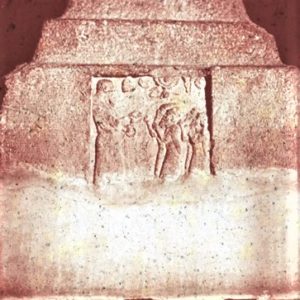
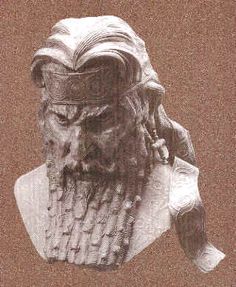 (
(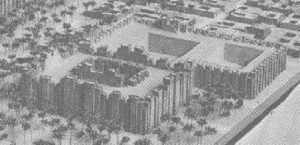 (private motel-residences for visiting gods in
(private motel-residences for visiting gods in 
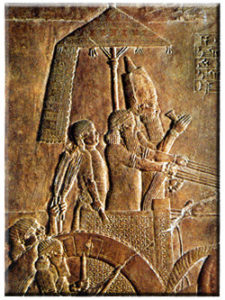
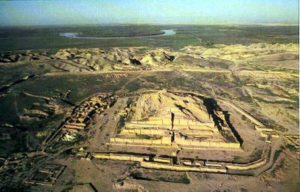
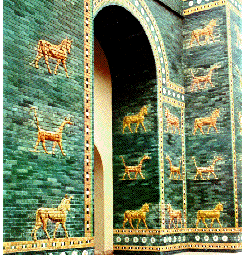
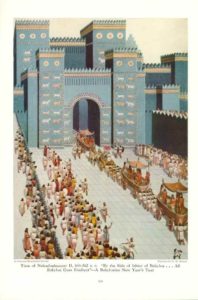
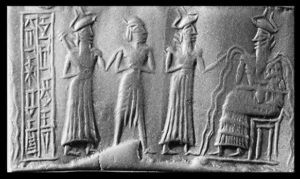
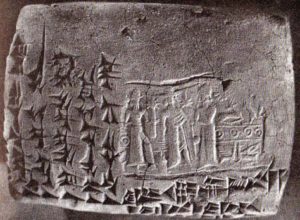
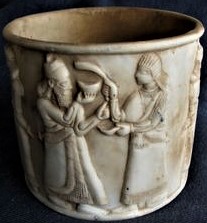
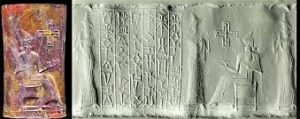
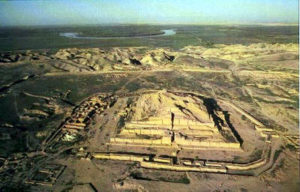
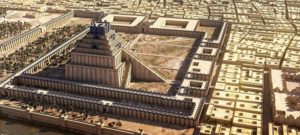
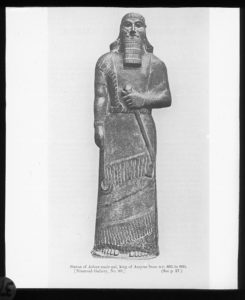
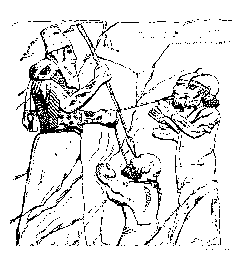 (
(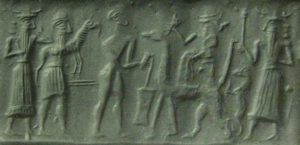
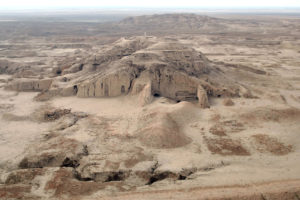
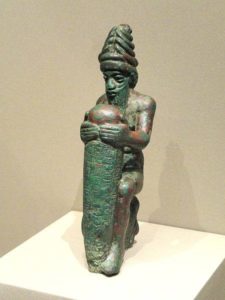 (
(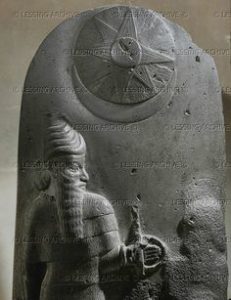
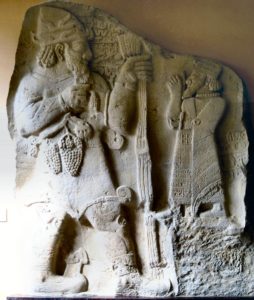
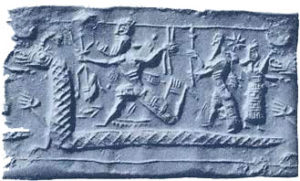
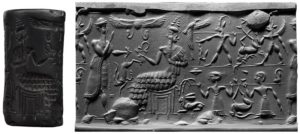
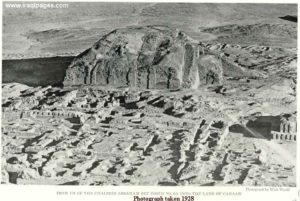
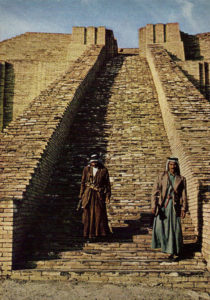
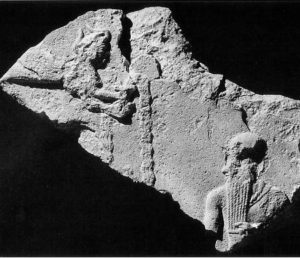
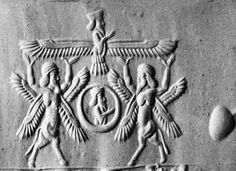
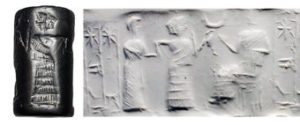
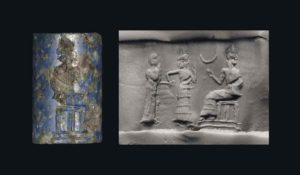
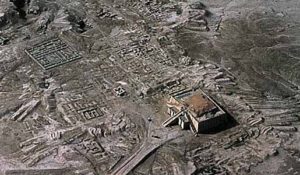 (
(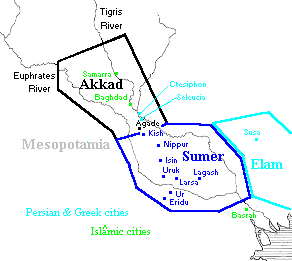
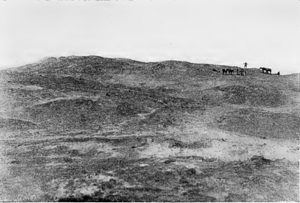
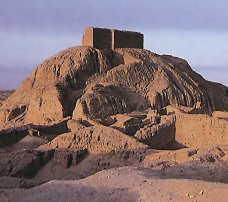
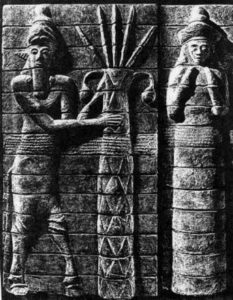
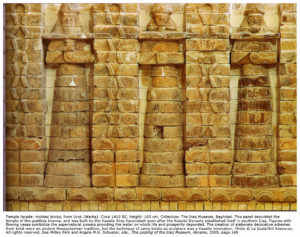 (
(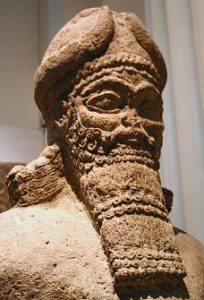
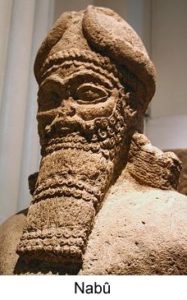 (
(